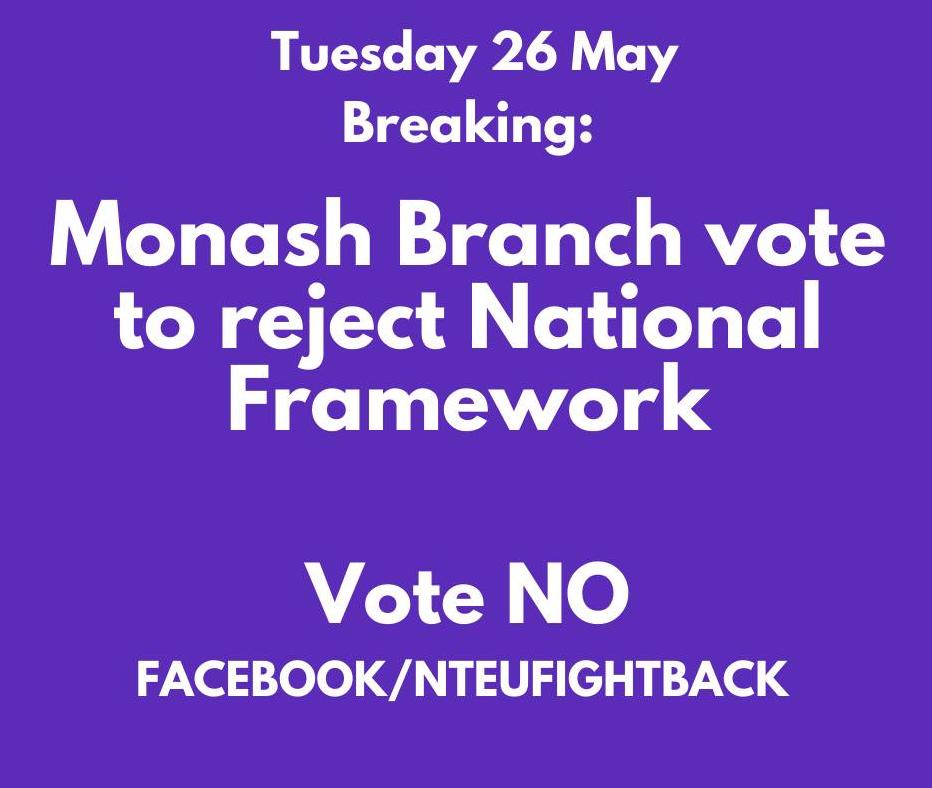
Read the Charter of Independence here.
BY SALONEE MISTRY
Monash University eSolutions casual employee Edan Goodall was on the job when he was told he would be unemployed in less than a week.
His area manager approached him and a couple of his colleagues. They were told they would not be getting any more shifts.
“It was an immediate pain of uncertainty and instability and any sense of financial security just fell away,” Mr Goodall said.
Having received no warning of his impending unemployment, he was unable to financially prepare himself.
“I had to reach into my rainy day fund and dip into savings I did not want to touch for even basic utilities and bills.
“Casuals do not make a lot of money, and I lost [my] source of income. This was also at a time when there was no JobKeeper support.”

It happened too suddenly, he said.
“We had been trying to keep an eye out for news but the information trickled down and then suddenly we were told we would not get any more shifts.”
According to Mr Goodall, when the COVID-19 crisis triggered classes to move online, several casual non-academic staff tried to contact Monash University to find out what would to happen to their jobs.
He said at best they received vague replies, at worst - radio silence.
The Monash Casuals Network has been conducting a survey to better understand the plight of the casual and sessional staff at the university.
Around 100 casual and sessional staff have been surveyed, with the sample spread across the art design and architecture, business, law, library, Monash Connect and eSolutions staff.
Thirty three per cent of those surveyed have lost their job and 68 per cent are concerned they will no longer be able to meet everyday living expenses.
Fifty one per cent also have a larger workload due to the changed circumstances.
A Monash University library staff member, who did not want to give their name for fear of potential future employment repercussions, said they were told about being stood down via email.
Together with colleagues, the staff member brainstormed ways they could maintain employment.
“Our suggestions unfortunately fell on deaf ears and communication appeared to further break down from there,” the staff member said.

“There was an upsetting breakdown in the relationship between casual library staff and management suddenly, and it had a really saddening impact on the perceived value of us and our role.
“We expected some form of transparency and honest communication from the management and this is clearly not what has occurred for us.”
A Monash University spokesperson said the university was working hard to protect staff from job losses, but social distancing rules requiring on-campus operations to cease meant some jobs could not be saved.
“Where we no longer require the services of casual staff who have already worked with us this year and where there was no expectation they would be required for the remainder of semester one, we have paid a support payment of the equivalent of up to two weeks of their rostered or scheduled work,” the spokesperson said.

“In addition to the casual support payment we extended access to 14 days paid isolation leave, when required to be in isolation due to COVID-19.
“We have also implemented a coordinated university-wide program Flex@monash to look for opportunities to reassign all staff, including casual and sessional staff, to other available work.”
As Victoria flattens the COVID-19 curve, the spokesperson said the university may reengage some casual staff.
However, current students will be given preferential access to these employment opportunities.
Mr Goodall said there was never enough information given to the casuals about Flex@monash and they “did not get a choice”.
“Initially, our options were to join Flex@monash or get a lump sum payment of two weeks," he said.
“Then, we were just given two weeks' salary on the condition that we would not be employed for the rest of semester one, which meant we were not eligible for Flex@monash and if we are still eligible, we haven’t been told.”
In a bid to protect as many jobs as it could, the National Tertiary Education Union (NTEU) reached an agreement with the Vice-Chancellors of various universities to save a projected 12,000 jobs nationally.
If signed, the Jobs Protection Framework prohibits universities from involuntarily making staff redundant, supports temporary wage reductions for staff and promotes the re-deployment of casual academics to other areas of need, among other job-saving measures.
However, the framework has been met with resistance from union members, with Facebook page NTEU Fightback - No Concessions accruing almost 2,000 likes.
The Monash University NTEU branch straw-polled 330 members on May 26, who agreed to reject the agreement when official voting takes place.

Mr Goodall said he agreed with the concerns raised on the Facebook page and rejected the agreement due to its proposal of wage cuts.
“The money to keep employees in their jobs should not come from other employees. This - intentionally or otherwise - will divide the ranks of workers within these institutions,” he said.
A date for Monash University employees to vote on the framework is yet to be set.